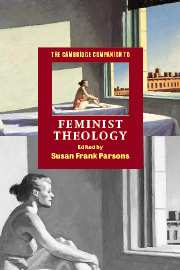14 - Eschatology
from Part two - The themes of feminist theology
Published online by Cambridge University Press: 28 May 2006
Summary
‘Eschatology is . . . Christology and anthropology conjugated in the future tense.’
INTRODUCTION
Eschatology is, to define the word etymologically, 'the study of the eschaton', a Greek word meaning 'the furthest end', and usually translated in its theological sense as the 'last days' or, more loosely, the 'end of time'. So, eschatology traditionally has been understood within Christianity as the study of the 'Last Things', particularly in the areas of death, judgment, heaven, and hell, associated in the New Testament with the Second Coming of Jesus Christ. These 'Last Things' have been seen as apocalyptic, retributive, restorative, and, above all, transformative. The one thing that all visions of humanity's and creation's future have had in common is the belief that our future reality will be radically different from our present reality: 'new heavens and a new earth' (Isaiah 6517). In sum, for most of Christianity's history, eschatology has been speculation about the ultimate end of humanity and of creation - the advent of the Kingdom of God.
- Type
- Chapter
- Information
- The Cambridge Companion to Feminist Theology , pp. 243 - 260Publisher: Cambridge University PressPrint publication year: 2002



